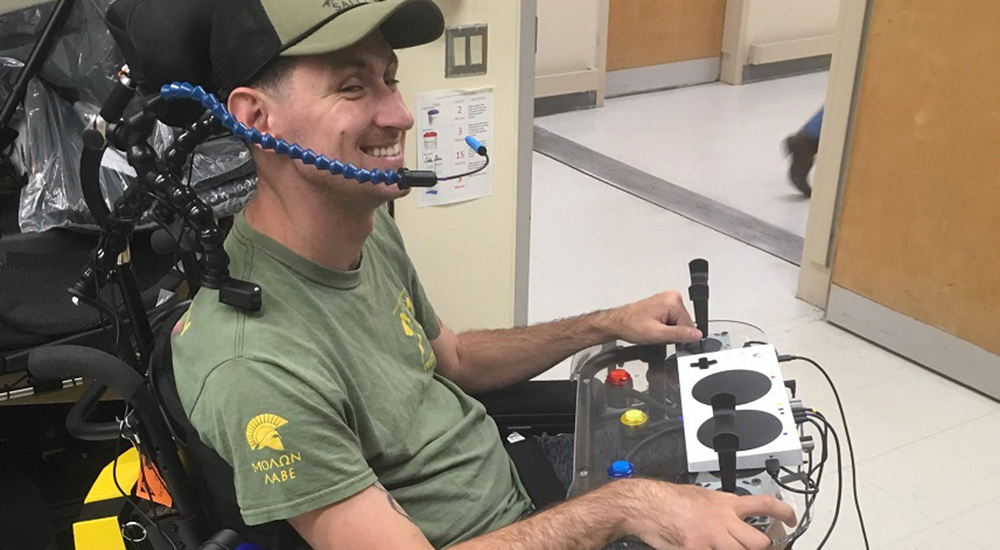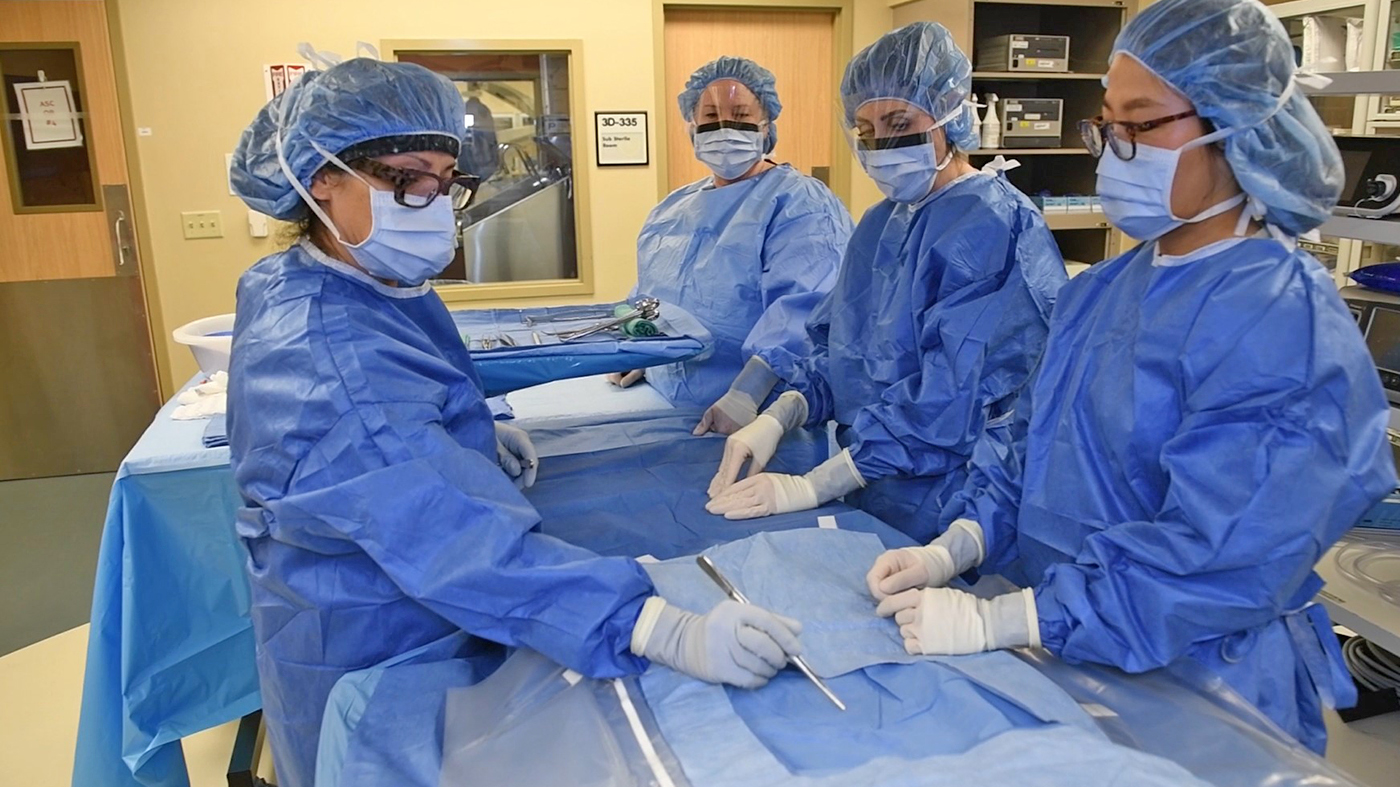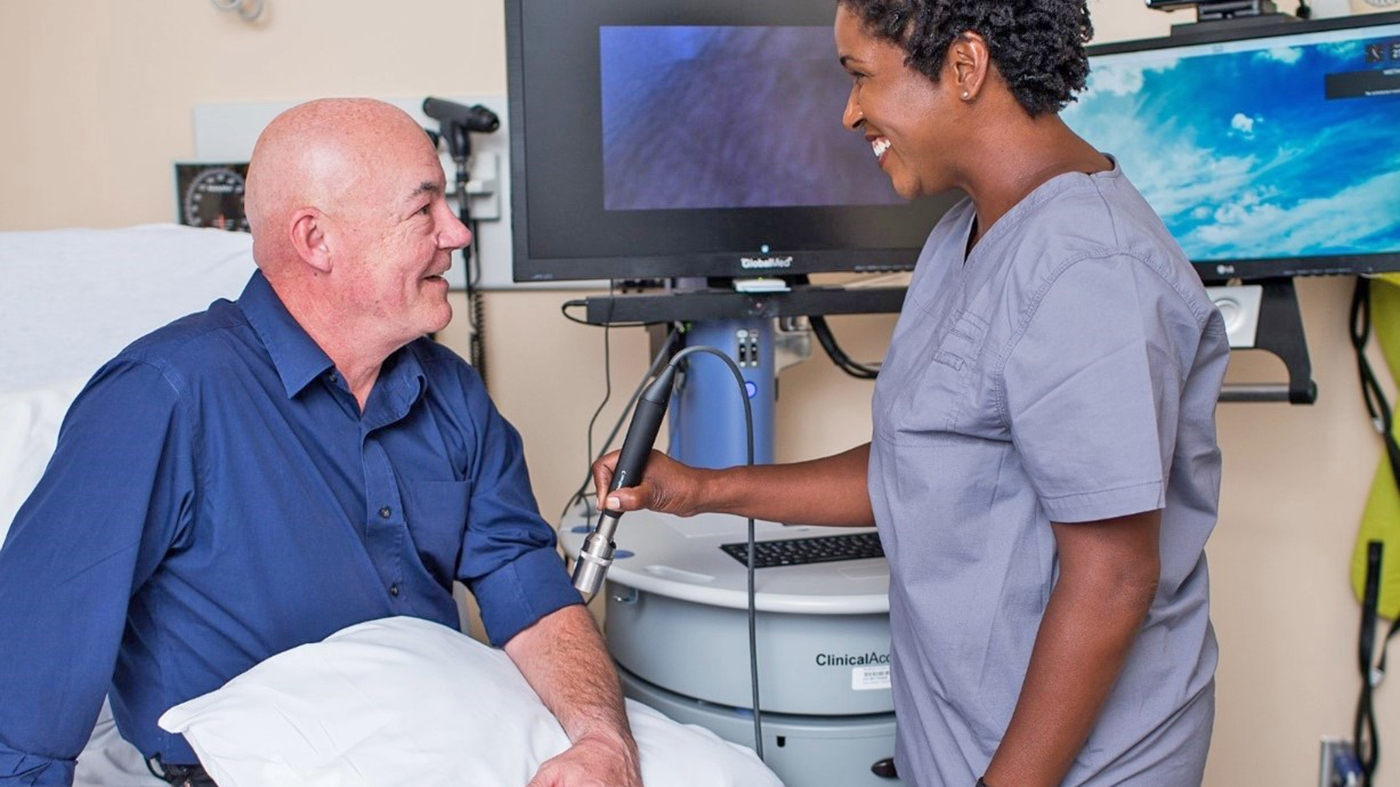After a car accident left him with limited use of his hands, Marine Corps Veteran Lance Knadler could no longer play video games. This changed when engineers at Richmond VA Medical Center designed a controller adapted to his abilities.
Richmond clinical rehabilitation engineer Seth Hills had plenty of experience customizing gaming equipment for Veterans with limited mobility in a field known as assistive technology, or AT. His first success was adapting a two-handed Wii controller for a patient who could move only one hand.
Hills and engineer John Miller fitted the Veteran’s wheelchair with a custom acrylic desktop to help Knadler play his collection of 58 Xbox games. They added oversized joysticks, a mouth-controlled switch and buttons designed for Knadler to push with his elbows.
Game On
Using the new setup, Knadler was able to get his game on for the first time since his accident.
He was pleased at the prospect of playing Smite and Castle Crashers with his nine-year-old daughter.
“She’s looking forward to playing some co-op with her daddy,” Knadler said. “Co-op” is cooperative play between two players in the same game.
Richmond VA health care providers have found that for patients with limited mobility, gaming is therapeutic as well as fun. Its occupational and recreational therapists are now learning how to include video games in patient treatment plans.
Richmond is one of only a few VA medical centers in the country with an AT program. But Hills and his group are spreading the word by sharing their knowledge with other VA hospitals that want to start programs of their own.
Author Sydney Dudley is a volunteer at the Richmond VA Medical Center Public Affairs Office. Photographer David Hodge is a public affairs specialist at the Richmond VA Medical Center Public Affairs Office.
Topics in this story
More Stories
“Scrub 101” teaches nurse practitioner residents how to assist providers in a sterile environment, such as in an operating room
REBOOT is designed to help Veterans address the spiritual and moral wounds of war, fostering a sense of unity.
Lebanon VA is using telehealth to cut the wait for dermatology care for urgent and non-urgent conditions.








Keep up the stellar work. You rock.